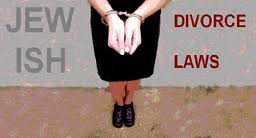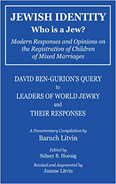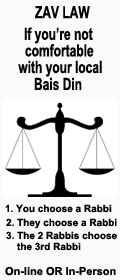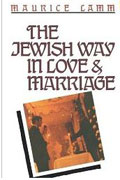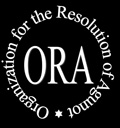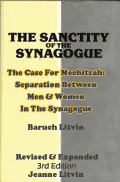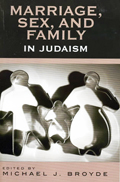Q & A

JEWISH BUSINESS HALACHA
Page 2
♦♦♦♦♦
My business is low on cash.
Can I offer my workers a bonus,
if they agree to delay payment of wages for a month?
- Once wages are due, it is prohibited to offer the workers an additional amount for delay of payment, because awaiting payment of owed wages is considered a 'loan' to the employer
& the 'bonus' is considered ribbis on this loan (Y.D. 173:12). - Therefore, the contract cannot stipulate additional, increasing charges for delayed payment.
- Even if the employer withheld the wages without consent, the worker is not entitled to receive interest on the delayed wages (Shach 176:8; Bris Yehuda 2:17).
- However, after the salary is paid, some authorities permit a small bonus if it is not linked
to the delay in salary. - An employer may distribute a holiday bonus or issue the next paycheck ahead of schedule (Shach Y.D. 160:10; The Laws of Ribbis 10:13).
- Also, if the wages are not due yet, it is permissible to extend the job & pay a higher amount
at the end. For example
1. if a person hired a painter and wants to delay payment, he can suggest – before the work
is finished – to also paint the pantry later & add for the delay till then.
2. This is permitted because the homeowner has no obligation to pay until the job is finished,
so awaiting payment until then is not considered a 'loan'to him (Y.D. 173:12).
♦♦♦♦♦
My friend borrowed my car & got into a car accident.
She is, of course, paying for the damage caused to the car.
But now my insurance will go up.
Does she he have to pay me for the extra amount
that I will now have to pay for insurance?
- According to halachah your friend is likely not obligated to pay for your additional premiums.
- The additional premiums you incur as a result of the accident are deemed indirect damage (geromo) for which halachah does not impose liability. (B.K. 60a: Yam Shel Shlomo B.K.
6:6; S.A. C.M 386:3 Ramo, ibid 418:7; Pischey Teshuvah S.A.C.M. 28:5.)
♦♦♦♦♦
Can I attend a business conference
that's held in a non-kosher restaurant ?
- In principle it is not permitted to sit down at a table in a non-kosher restaurant.
- The reason for this is the problem of 'maris ayin (looks like the person is transgressing)
an issur (prohibition) by eating in the non-kosher establishment. - Rav Moshe Feinstein (2:40) writes that when a person is hungry & in a state of
discomfort, it is permitted to eat kosher food in the restaurant on condition that
this is done privately in a way that friends don't see him & that he tells those who
do see him that he was in a state of discomfort. - Shut Minchas Asher (67) goes further & writes that for business meetings there is
no prohibition on entering the restaurant because people understand that business
meetings can be held in non-kosher establishments even when no non-kosher food
is eaten. So there is no reason to assume that the person will be suspected of
eating non-kosher food.
1. He adds that it is also possible that the prohibition of mar'is ayin doesn't apply here
because we don't add circumstances of mar'is ayin that Chazal didn't mention.
This depends on a dispute between the Magen Avraham (463:4) & other authorities
(see Peri Chadash, Yoreh De'ah 87:7, Peri To'ar 9).
2. Therefore, if attending the conference is important, either for reasons of earning a living
(parnassa) or for reasons of education, one can be lenient & attend. However, it
remains preferable to avoid entering & sitting in a non-kosher establishment to
distance oneself from the appearance of doing something wrong.(mar'is ayin).
♦♦♦♦♦
While pricing computers, a salesman promised
he would beat any price I found.
I told him a cheaper quote I had received & he agreed to beat it.
Do I need to tell the salesman my mistake or can I go with the agreed price?
- It is forbidden to deceive someone (Chulin 94a)
- Sellers sometimes try to make a deal look better by suggesting they are giving a
discount when they really aren't. - A certain degree of exaggeration is not unusual in sales transactions.
- However; in your case the price was agreed to by being directly linked to a specific quote on
a specific item. The Maharashdam (CM 434) has harsh words regarding an agreement
to a certain price margin where the seller gave the wrong information regarding the cost
of supplies.
♦♦♦♦♦
Is an agreement to hire a worker mutually binding
before he begins working? - Yes, if an act a transaction (kinyan) was made.
- Employing a person, like any transaction, requires some form of kinyan to confirm the mutual obligation.
- The act of kinyan can occur in numerous ways
1. Any action taken that is a common practice when hiring workers is also binding halachically
(situmta), such as signing a contract or swiping a credit card.(Magen Shaul #142;
Pischei Teshuvah 333:2)
2. A kinyan sudar (e.g., holding a handkerchief) also confirms the employment obligation (Shach 333:4,14; Pischei Teshuvah 333:4).
3. Money given as a deposit or partial payment also can confirm the employment
obligation.(Nesivos 333:1; Chochmas Shlomo 333:3).
4. If the employer took the worker’s tools or if the worker placed the tools in the employer’s
property in preparation for work, it is also considered a kinyan for a kablan. - Conversely, if a professional took an item to work on, some consider this an act of kinyan (Rema 333:1; Shach 333:2,4; Taz 333:1; Nesivos 333:1,10).
♦♦♦♦♦ .
A drop of fish juice fell into my meat stew.
It is clearly less than 1 part in 60.
Is the meat stew still acceptable for consumption?
- With respect to non-Kosher food, there is a well-known principle of batel b’shishim,
nullification in sixty parts. - Thus, if an ounce of lard accidentally fell into sixty ounces of chicken soup, the lard
is batel b'shishim & the soup can be eaten. - Does bitul apply to fish & meat, which are a concern of sakana (danger) rather than
halachic prohibitions. This is a matter of dispute. - The Shach (Nekudas Hekesef, YD.116), Chochmas Adam (68:1) & Pischai Teshuva
(116:3 citing many responsa) opine that bitul does apply to fish & meat, while the
Taz (Y.D. 116:2) writes that it does not. - Rav Belsky, zt”l was of the opinion that the lenient view is the primary halacha & as
such the stew in our question may be consumed. However, Rav Belsky, zt”l added
that there are individuals who follow the stringent view of the Taz and would refrain
from eating the stew.
♦♦♦♦♦
♦♦♦♦♦
♦♦♦♦♦
Copyright © 2012 -2018 KosherWoman.com
All rights reserved





















